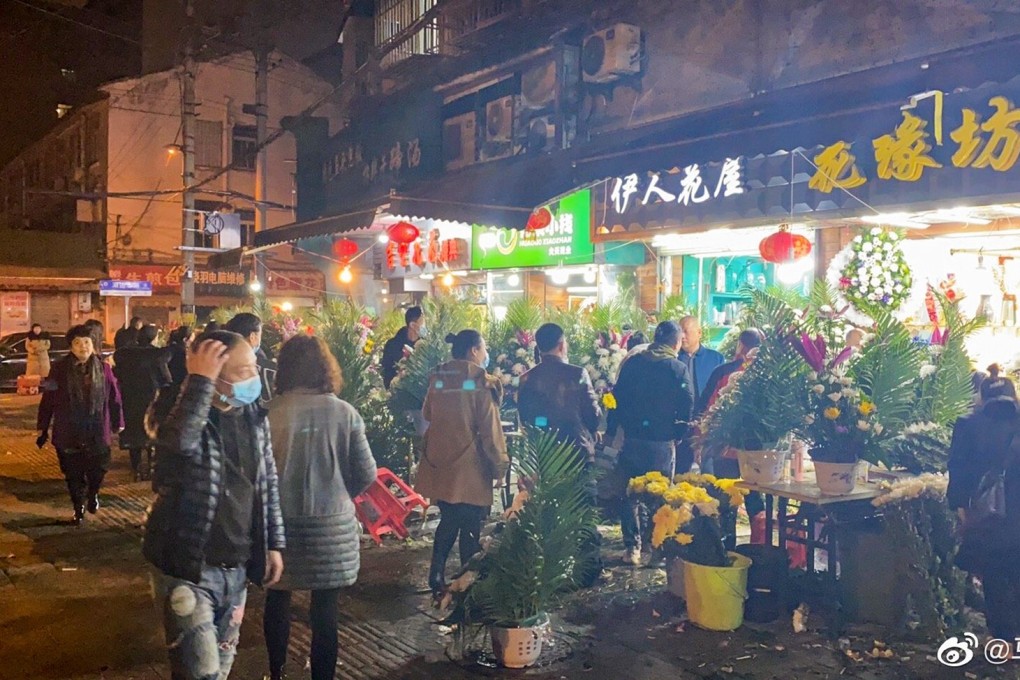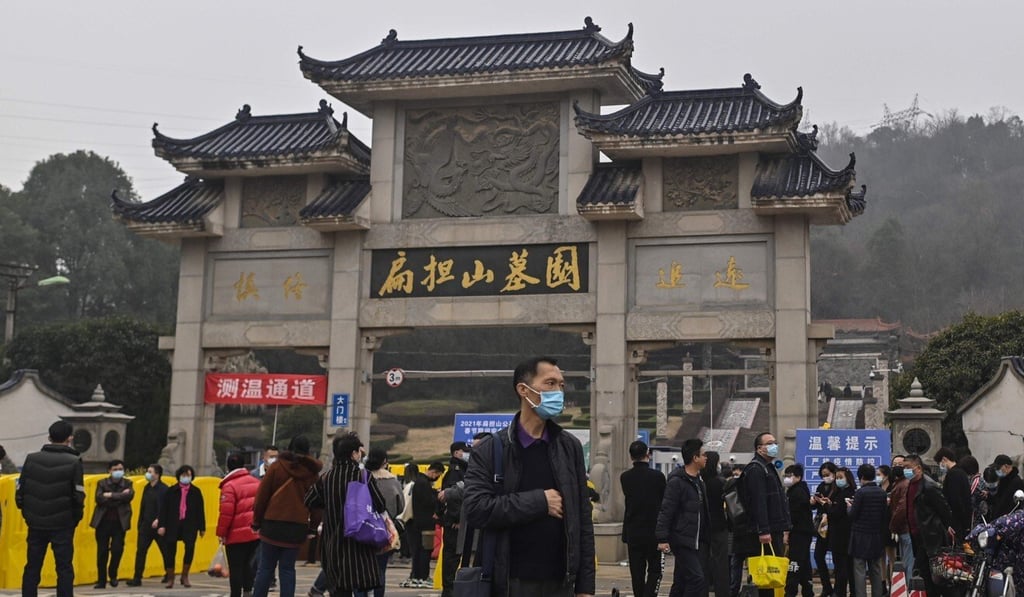Advertisement
Coronavirus: in Wuhan, a Lunar New Year rush to pay tribute to Covid-19’s victims
- Each year, the city’s residents buy flowers and burn incense to remember those who have died since the last Spring Festival
- Chrysanthemums are in short supply and high demand as the effects of the pandemic linger
Reading Time:2 minutes
Why you can trust SCMP
1

Early on Friday, the first day of the Lunar New Year, shops in the central Chinese city of Wuhan were selling out of chrysanthemums as residents bought them to take to the grave or home of a deceased family member.
Throughout Hubei province, of which Wuhan is the capital, it is a tradition to visit the household of a person who has died in the last lunar year to offer flowers and burn incense soon after midnight.
This year, demand for the flowers for shao qing xiang or “burning incense” was particularly high, with many residents buying the yellow and white chrysanthemums to remember those who died from the coronavirus.
Advertisement

Resident Wen Ji said she avoided the crowds this year and stayed home but friends told her of traffic jams around Wuhan’s largest flower market, near Xunlimen district, and people fighting over flowers.
Advertisement
At Chili Flower Wholesalers near the market, the shop’s owner said they had sold out of chrysanthemums partly because of high demand but also due to shortages caused by Covid-19.
Advertisement
Select Voice
Select Speed
1.00x